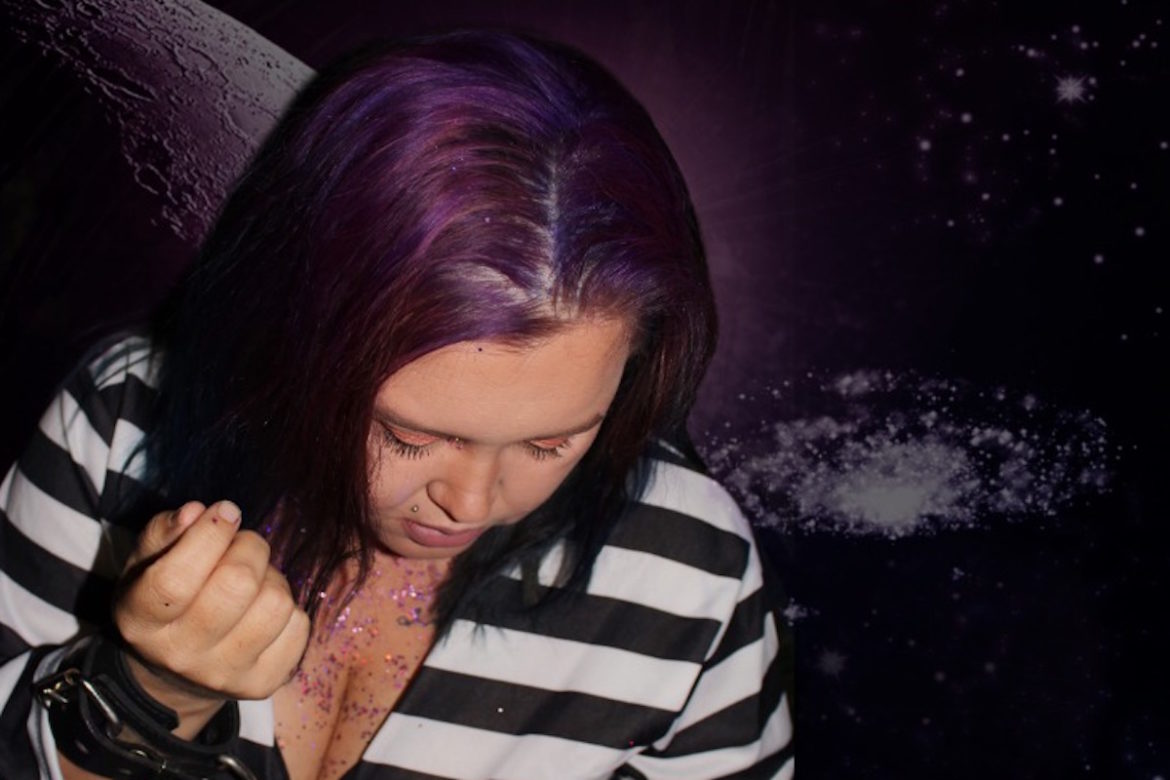‘It makes me believe that magic can happen’: New Review critic Monique Grbec on Sheree Stewart’s Pilepileta at Melbourne Fringe
Pilepileta, meaning to shine and glitter in Sheree Stewart’s mother tongue Wemba Wemba, premiered for Fringe at Theatre Works. Like stars reflecting in the pond of Stewart’s past, this performance glitters as a dreamtime mindscape that offers universal hope for a connected future – a world where connection, the opposite to addiction, is the sun that warms heart and heals soul.
Stewart’s performance, following her journey from child to adulthood, is captivating. As she cradles an armful of well-worn stuffed toys, we learn of the violent alcoholic father bashing her mother, his efforts to burn down the family home while she her mother and brother huddle inside listening, waiting, hoping, We live with Stewart and her brother as they attempt to protect the family’s three dogs, who had got into the chicken coup and killed some chickens. Her father chased them down, took the dogs to the tip, shot them and abandoned them. I wanted to hear (feel) the sound exploding from Stewart’s gut: BANG BANG BANG.
When her father was killed in a car accident during a bus trip with mates, I wanted to know she was relieved. I wanted to hear her say that awful hidden truth that we are not allowed to say out loud: I’m glad he died.
A singer floats onto the stage out of the audience. A tall, translucently white songstress whose lulling wails were indecipherable, like angel’s whispers. Was she Stewart’s spirit self? Was she the one given permission to speak soul truth: my dad is dead and finally I am free. My dad is dead and finally I can breathe. I am glad my dad is dead. My dad deserved to die.. But when the singer returned a second time my rapture disappeared. The shapeless words felt less like spaces connecting the stars and more like the empty space between them – as beautiful as the singing was, it felt more like a filler.
Stewart marks the family moving from farm to country town by dressing on stage. The measured pace and soft rock soundtrack make the intimacy palpable: black dress and jacket, red and black tights, Doc Martins, and a pearlescent, shimmery backpack. The fractured identity and contradictions of the self-aware teenager are softened. This youth, self-appointed protector of her brother, is still running. Now she’s running from the country town yobbos who have identified her colour and queerness – her strengths. They taunt and terrorise, and 16-year-old Stewart moves to the city.
In the city Stewart looks upward, and instead of Bunjil the Creator she sees gargoyles looking down from the buildings. Architectural designs intended to channel rainwater away from the edge of the roof to prevent damage and erosion to the building below, or used by churches to remind us that the devil lurks – and tell us to come inside and ye will be blessed by the beauty within. Here Stewart finds her place. Here she becomes the connector, the safe place for the runners, lost souls and survivors. Here, the strength of her colour and queerness are welcomed.
While I hankered for more language and the sweetness of Stewart’s coming-out story, Pilepileta is shiny and glittery. Pilepileta is a hope and healing in motion, a promise to aim high and choose connection. Pilepileta makes me want to be a better person. It makes me believe that magic can happen.
The New Review program is a collaboration between Witness and Footscray Community Arts Centre West Writers that nurtures and mentors new critical voices. It is part of Malthouse Theatre’s Living Now resident writers program, funded through the MPA Collaborations program, and has been assisted by the Australian Government through the Australia Council for the Arts, its arts funding and advisory body.
Pilepileta, created and performed by Sheree Stewart. Theatre Works, Melbourne Fringe.

